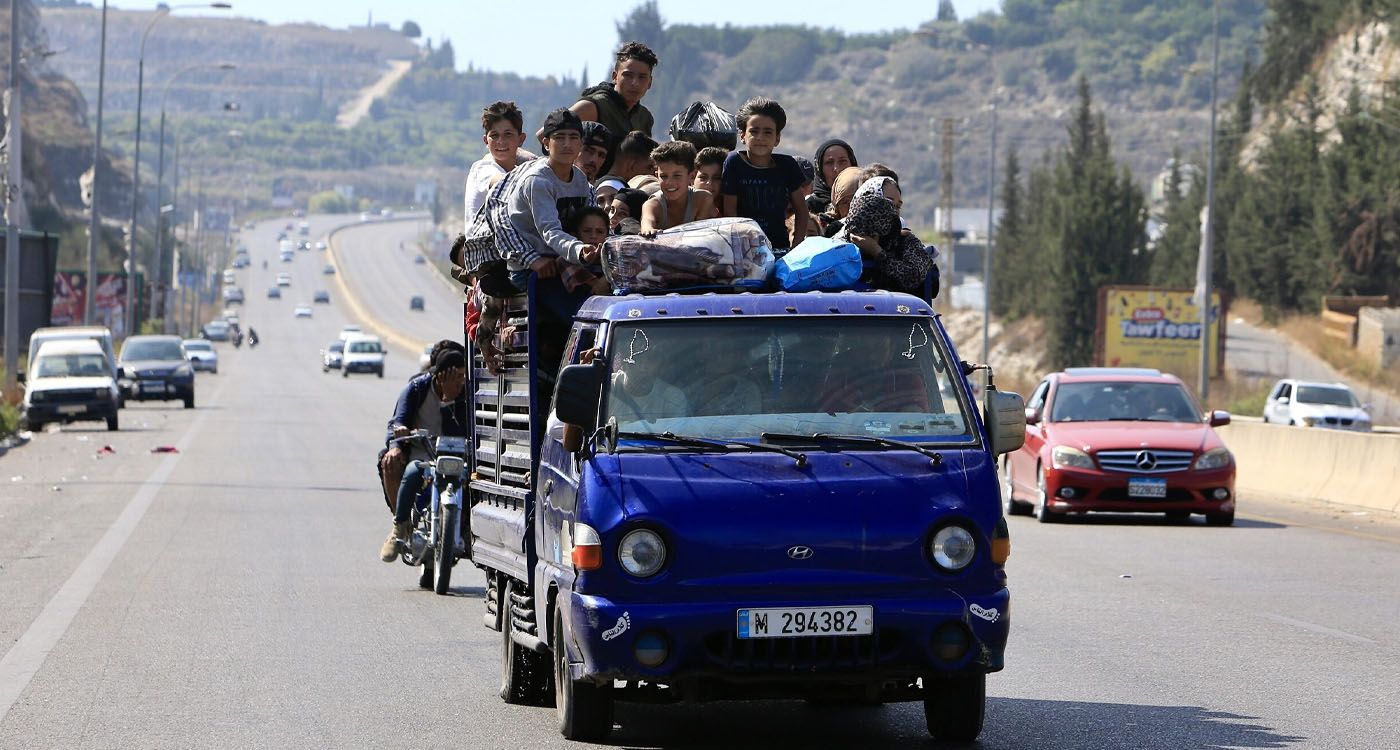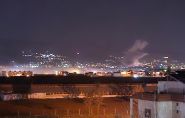
Since September 20, nearly two million Lebanese have been displaced, with 550,000 fleeing abroad. These figures point to a profound demographic shift, especially if Israeli forces occupy and clear certain border villages, preventing their residents, predominantly Shiite, from returning. This situation is reminiscent of the Syrian war, where millions were displaced and unable to return due to the regime in power.
The crisis of displacement among residents of southern Lebanon, the Beqaa, and the southern suburbs of Beirut is intensifying. Many individuals have taken refuge in schools and shelters, spreading out on the grounds and sidewalks, while those wealthier have rented homes and businesses in safer areas across Lebanon to escape the relentless Israeli bombardment. This assault spares neither civilians nor infrastructure, including medical personnel, and has drawn widespread condemnation as a blatant violation of international laws and conventions, with many labeling it as genocide and crimes against humanity. If the conflict continues, experts in international law warn that it could lead to severe consequences, including exclusion, more killing, and mass displacement.
Since September 20, nearly two million Lebanese have been displaced, with 550,000 seeking refuge abroad. The displacement spans various countries, including Syria, Turkey, Iraq, and several European and Western nations. According to data provided to “Houna Loubnan” (sister company) by the International Information Center, although the number of displaced individuals is substantial, it remains lower than during the July War in 2006. This decrease is largely due to the ongoing financial crisis and limited resources, as well as the evacuation strategies adopted by certain countries. Additionally, the Syrian borders are not fully open.
The displacement figures are as follows:
62,000 citizens have left through Beirut Rafic Hariri International Airport.
128,000 Lebanese individuals have crossed into Syria.
330,000 Syrian refugees have returned to their homeland.
3,000 individuals have sought refuge in Turkey, primarily by land or sea.
8,000 have relocated to Iraq, with around 2,000 entering through Baghdad and Najaf International Airports, while the remainder accessed Iraq via the Al-Qaem border crossing.
The rising numbers signal a critical demographic shift, particularly if certain border villages are occupied and their residents—predominantly from the Shiite community—are prevented from returning. This situation parallels the Syrian conflict, during which millions of Syrians fled to Lebanon and neighboring countries such as Iraq, Jordan, and Turkey, mostly from the Sunni community. Many have refrained from returning due to fears of persecution under the current regime. Some analysts speculate that this trend may indicate a new demographic engineering initiative as part of the broader New Middle East project.
As the total number of displaced individuals and returnees to Syria approaches 458,000, comprising both Lebanese and Syrians, the issue of Shiite displaced individuals relocating to Iraq has gained prominence. Estimates suggest that between 3,000 and 8,000 have made the journey. Iraq, particularly the city of Karbala and the shrine of Sayyid al-Awsiya associated with the Al-Husseiniyah, has opened its doors to these newcomers, welcoming them as guests. Previously, they had visited annually as pilgrims for the Arbaeen commemoration of Imam Hussein, where they experienced the region’s renowned hospitality and generosity.
Many families from southern Lebanon, the Beqaa, and the southern suburbs have opted for Iraq as their refuge, encouraged by the Iraqi government's assistance. The government has allocated 3 billion dinars to provide services for the incoming refugees and has dispatched medical and food aid to Lebanon. Additionally, it has issued directives to facilitate the issuance of expedited documentation for Lebanese citizens wishing to travel to Iraq without passports.
The Al-Husseiniyah shrine has established a high-level committee to rescue the Lebanese population as well, coordinating with local authorities to ensure safe travel for those affected by Israeli bombings and threat. They have accommodated these individuals in six hotel complexes and announced that all their hospitals “are on alert” to receive any casualties from Lebanon. According to the latest Iraqi statistics, over 6,000 Lebanese have arrived in Karbala.
A Lebanese refugee currently in Iraq, specifically in Karbala, who wished to remain anonymous, told “Houna Loubnan” that he can no longer endure the relentless bombardment and living in a school with his family. He opted to travel to Iraq because, unlike in 2006, heading to Syria is unsafe, and the situation there remains unstable amid the ongoing economic crisis. He noted that Iraqis have warmly welcomed Lebanese displaced persons, treating them as honored guests and opening their homes to them.
When asked if each family received a house along with $1,000, he described this claim as somewhat exaggerated. However, he confirmed that there is available financial and food assistance, along with some free accommodations provided by generous individuals. He mentioned that while some families have rented homes, others have chosen to stay with relatives who had previously worked in Iraq. He expressed optimism, stating that if a ceasefire were achieved, everyone would return to Lebanon.
This situation has raised concerns about a potential large-scale Shiite exodus to Iraq, which could lead to a new process of “transfer,” especially since Israel has entirely destroyed many border villages, leveling them to the ground. The prospects for return and reconstruction in these areas may take years. However, in a recent statement, Karim al-Nouri, Iraq's Minister of Migration and Displaced Persons, clarified that the ministry will not set up camps for Lebanese arrivals, referring to them as “arrivals” rather than “refugees.” This distinction underscores Iraq's intention to regard these individuals strictly as guests.
A significant debate has emerged in Iraq over the potential implications of Lebanese displacement and concerns about a scheme to settle Lebanese displaced individuals, similar to the situation in Syria. Political analyst and journalist Mustafa Faqih informed “Houna Loubnan” that the number of Lebanese fleeing to Iraq is quite small. He emphasized that the Shiite elite in Iraq does not support a permanent influx of Lebanese, preferring instead a temporary displacement.
These individuals have been registered in the Ministry of Migration's database, and their basic needs are being met. Faqih pointed out that the religious authorities in Najaf are vigilant about this issue and do not wish for a permanent settlement of Lebanese Shiites, as they aim to maintain the Shiite demographic balance in Iraq and prevent any changes to the Shiite composition in Lebanon.
He stressed that the current priority is on providing shelter and assistance to alleviate the suffering of the Lebanese people and address their humanitarian needs. Once the conflict concludes, the Iraqi authorities are expected to encourage the Lebanese to return to their homeland.



Comments